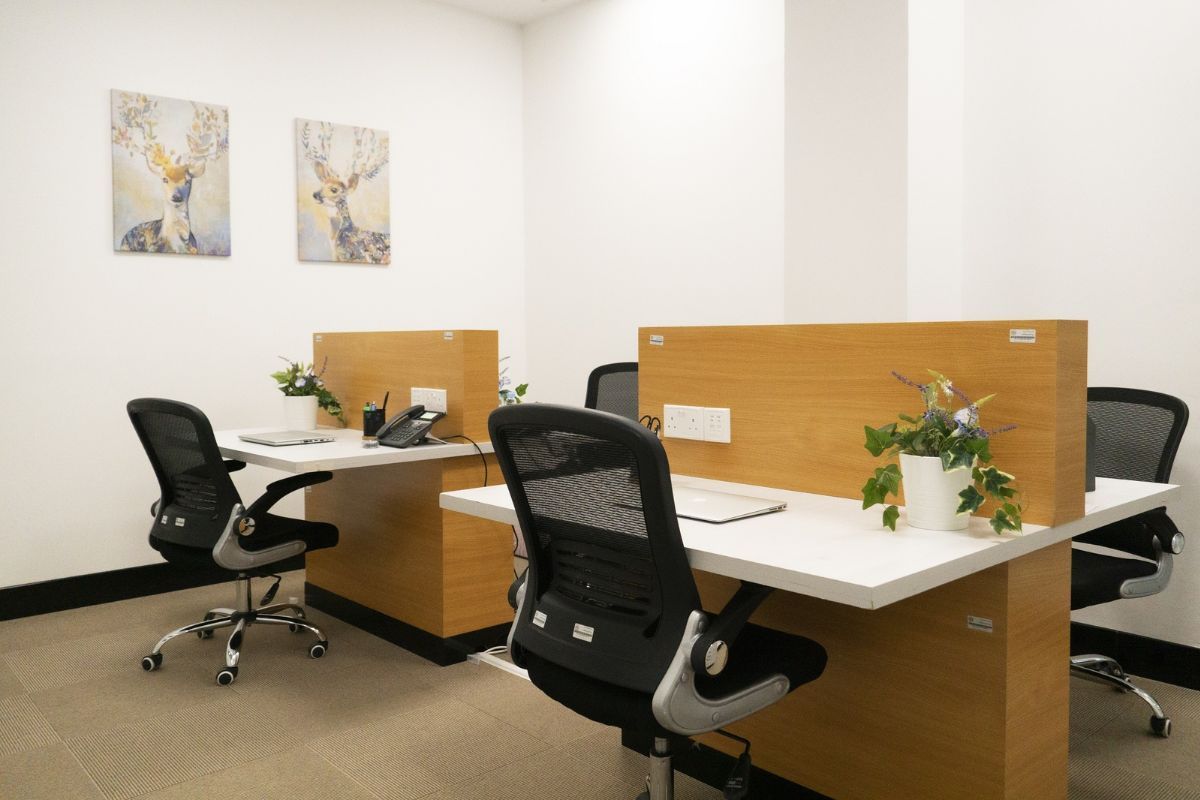Dubai’s growth from a sleepy fishing village to one of the most prolific business hubs was meteoric. It stands as one of the most prominent trade centres in the world and has become headquarters for several business giants, entrepreneurs and even start-ups.
Post-pandemic, the business world saw a structural transformation as companies shifted to remote working, almost completely shifting away from the traditional concept of a business as a physical entity. Soon, companies would realise the benefits of remote working for both employees and the business.
The past few years have seen the rise of start-ups in Dubai. In order to aid novice entrepreneurs, the Dubai government has set up the provision to establish Virtual Offices. Although a relatively novel concept, Virtual Offices have been rising in popularity. This article serves as a guide to the benefits and fundamentals of a Virtual Office and why Dubai is the ideal location to establish a Virtual Office of your own.
What is a Virtual Office

A virtual office is a modern service that empowers employees and business owners to work remotely while accessing various essential business functions through the Internet. Moreover, it allows organizations to establish a credible presence in desirable locations without the overhead of renting physical office space.
In essence, a virtual office offers businesses the same advantages and amenities commonly found in a physical office, but without requiring actual physical workstations. Inspired by the Executive Suite industry and came into existence in 1994 with the founding of "The Virtual Office, Inc," marking the pioneering moment of the virtual office phenomenon. The concept has since evolved significantly due to the advancements in communication technology and the popularity of online VOIP services like Google Hangouts, Zoom, Botim, etc. It has enabled businesses to function remotely, reducing the need for physical office spaces and lowering costs.
Essentially, you can have a business address here:

But work from here:

The service rose in popularity during the pandemic which forced physical businesses to shut down, and workers to retreat to their houses to work from home. This newfound flexibility has been a boon for start-ups and young businesses, allowing them to form teams outside of expensive city centres while maintaining a professional image. While some companies may not prioritize a prestigious postal address, for others, it can make a substantial difference.
How do they Work
The key element of a virtual office is that it provides a physical address and location for a business. The offices may be located as independent buildings or include a suite of small offices. It may also be an open coworking space where multiple establishments share a collaborative space. Virtual offices may also include amenities that can be found in an actual office like office equipment and printers.
The other elements of a virtual office may include:
1. Virtual Address: The physical mailing address provides a professional image to the business and allows businesses to receive mail and packages even if they may not have a physical office at that location.
2. Virtual Receptionist and Call Services: A virtual receptionist handles calls on behalf of the company, which helps provide a more professional customer service experience. Often, these virtual receptionists are automatic answering machines or AI programmed to provide customer service. Virtual offices may also offer phone services which include managing voicemail, redirecting and answering calls.
3. Remote Meeting and Conference Facilities: Some virtual offices provide virtual meeting rooms, with video conferencing tools like Zoom or Google Hangouts, and collaboration platforms to conduct remote meetings with clients, partners and colleagues.
4. Virtual Assistants: Aside from a virtual receptionist, some office providers also provide virtual or smart assistants that help with administrating tasks, scheduling and other essential business functions.
5. Share Office Space: If the business wishes to minimise overhead costs, they may choose to share a co-working space with other companies, facilitating employees or teams working together in a professional work environment on a need-to-provide basis.
6. Business, IT and Technical Support: some virtual offices provide additional business support, such as accounting, legal, and marketing assistance. IT services ensure the smooth operations of the operations and troubleshoot technical issues. Employees may also be given company access to collaborative tools like Zoom and Google Hangouts, project management platforms, and cloud-based storage or workspaces.
7. Virtual Business Hours: Virtual assistance and receptionist services allow business hours to be flexible or even 24/7, even when operating from different time zones.
How to know if a Virtual Office is the right choice for you?

The biggest advantage of a virtual office is its cost-effectiveness. The operation of a Virtual Office involves lower overhead costs compared to a traditional business. Unlike traditional business which consists of a tangible space with office space, utilities, equipment, furniture, and other miscellaneous expenses like maintenance, Virtual Offices only require the address, and the utilities are optional resulting in significant savings for the business.
The alleviation of remote working allows employees of a Virtual Office the flexibility which can aid the business in tapping into a larger talent pool. Employees can work from anywhere with an Internet Connection, which means businesses can hire globally. Remote working can have several advantages like work-life balance for employees, improved productivity due to more control over their workspace, reduced commute times, enhanced collaboration tools and environmental impact.
The organisation can also maintain business continuity in times of emergencies, natural disasters, or unforeseen circumstances, the business can continue to function even when the physical office becomes inaccessible. Additionally, the service allows scalability because it streamlines the accommodation of new hires at a workplace that may be expanding rapidly, without the need to make physical provisions or space adjustments.
However, it’s important to remember that like any other business structure, Virtual Offices come with their own set of challenges. Remote working can sometimes lead to communication challenges or misunderstandings between colleagues or clients, especially due to its heavy dependency on technology and internet connectivity. Technical issues, internet outages, or cybersecurity breaches can critically impact the functioning of the business. It may also pose a major cybersecurity risk since storing confidential data on personal devices or unsecured networks can increase the chances of data breaches and security leaks.
While the virtual assistance system can be advantageous in terms of accessibility, the absence of in-person interactions can affect the rapport between employees, and cause frustrations for customers who wish to access information beyond the capabilities of AI.
In the absence of a competent monitoring system, there may be difficulties in monitoring productivity among employees, as it may be challenging to gauge performance and productivity without direct access to employees. While employees may benefit from freedom to choose their office space, for those with distractions at home, such as children, or pets, the lack of boundaries between work and personal life may make it difficult to focus on work. Some employees may have limited access to resources as they may not have essential specialised equipment or documents readily available.
When hiring globally, the time-zone differences may cause challenges when scheduling meetings, collaboration or communication. It is also important to consider compliance and legal stipulations when operating in multiple locations or hiring globally.
Despite these challenges, plenty of companies have successfully established virtual office setups by implementing strategies and solutions to mitigate the concerns effectively. After meticulously weighing the pros and cons, a company can decide whether a Virtual Workplace is a feasible setup for them.
What are the Virtual Office services available in Dubai?

There are several exclusive services available in Dubai. The geographical location of the city as a gateway between the East and West, makes it an ideal base to serve both regional and international markets. Not only that, Dubai’s business-friendly attitude, minimal bureaucracy, simple registration procedure, and above all no personal income tax make it the ideal location to implement Virtual Offices.
The Dubai Government not only encourages the development of Virtual Offices but also has facilitated it by establishing Virtual Free Zones. Virtual Free Zones are designated areas within the city where entrepreneurs can set up virtual businesses without the need for a physical presence. Companies operating within Dubai’s Free Zones enjoy tax exemptions on corporate income tax and customs duties.
Most Virtual Offices in Dubai provide the following services:
- A physical address either on the mainland or within one of Dubai Free Zones as per your choosing
- A local contact where potential clients or business partners can reach you on
- A mail collection service to collect, forward, and answer physical and e-mails
- Rental space for conferences or meetings
What Is a Virtual Office License

In order to establish a virtual office, you must first obtain a virtual licence, which refers to a legal permit for companies to establish a business that has no physical presence. Issued by the Department of Economy and Tourism in Dubai (DED), the licenses entitle virtual businesses to establish a presence without needing to be physically present. This can be advantageous for startups and small businesses that plan to scale up but may lack the resources.
The virtual license enables businesses to establish a presence without having to be physically present, which can be beneficial for startups and small businesses that intend to scale up but may lack the resources to do so.
The virtual license enables virtual companies to do the following through the registered agent:
- Open corporate bank accounts
- Register trademarks and patents
- Apply for visas
- Apply for residency permits
There are certain stipulations for obtaining a virtual license in Dubai:
- The business entity must now occupy or own property or space in Dubai
- The business entity must not have employees operating from within Dubai, besides clerical and administrative staff
- The business entity must not conduct activities that would require a physical presence
The Dubai government developed a virtual commercial city, which alleviates the process of setting up operations and offices within a digital sphere. Dubai Virtual Commercial (VCC) consistently attracts entrepreneurs, freelancers, and global corporations. Designed to make Dubai the first global city for trade in digital commerce, the VCC is a free trade zone with no taxes, tariffs or quotas on imported goods.

In order to obtain a virtual license in the VCC, your business entity needs to meet certain requirements:
- The business entity must not reside or have a physical location in Dubai
- The business activity must be among the following: computer programming, printing, advertising, design, and consultancies.
- The business entity must have its business and tax registration in one of the 101 approved countries.
Read Also:















